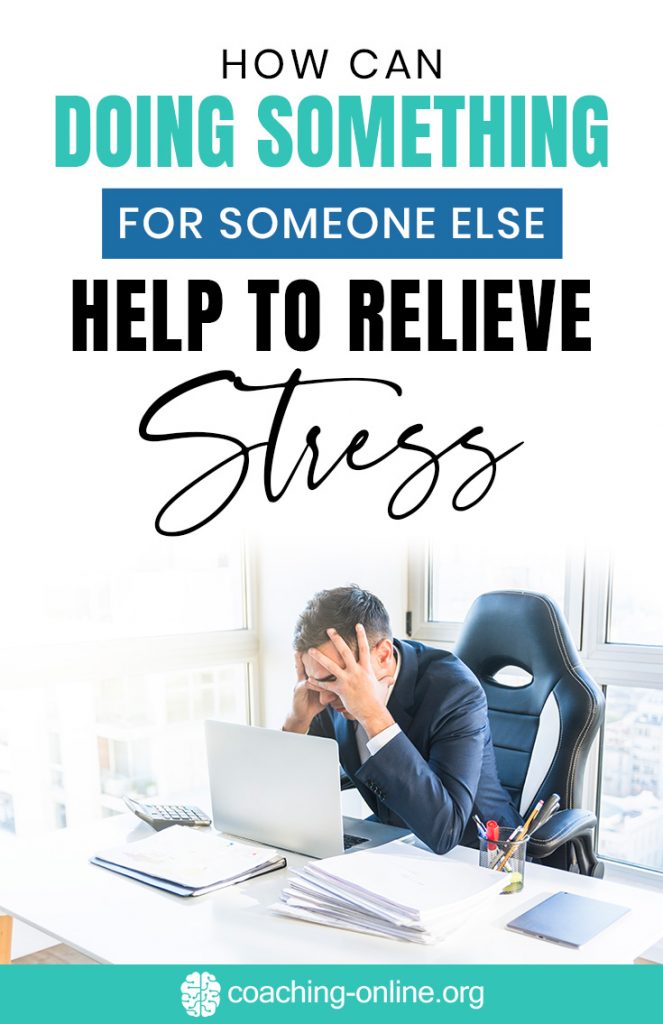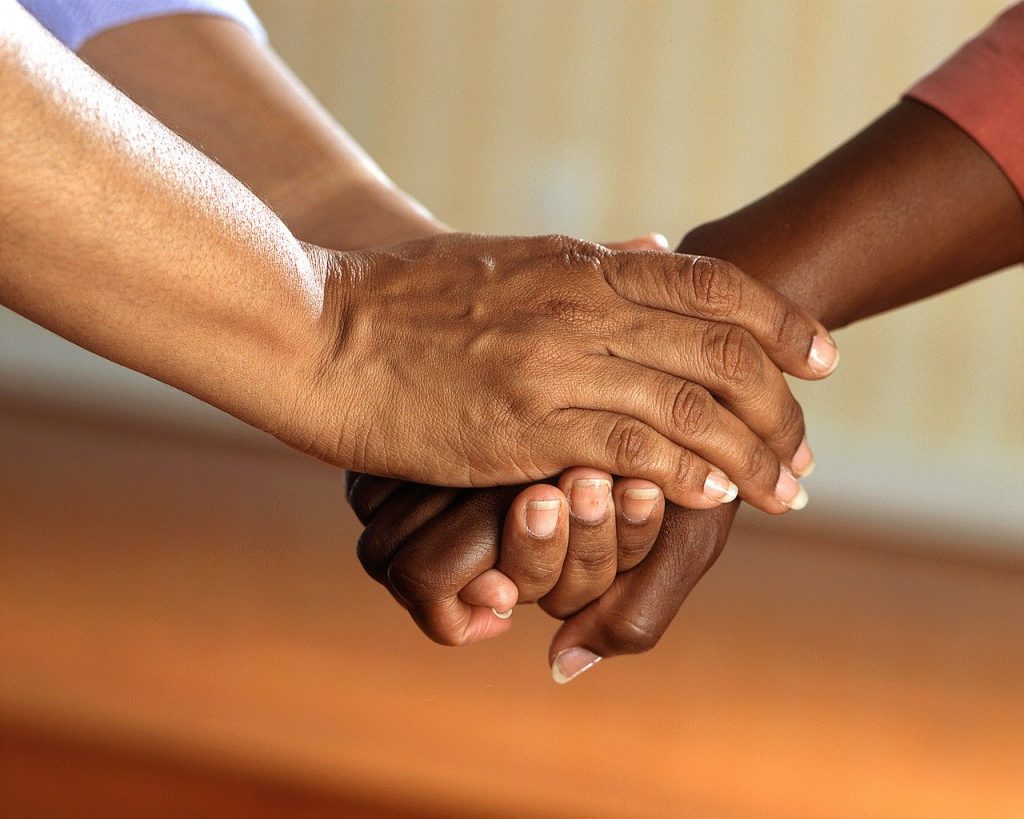Do you want to know one of the most effective ways to relieve stress?
If you are experiencing stress due to:
- Work
- Finances
- Health
- Family
- Relationships
…or for any other reason, read on to discover how helping someone else can help relieve your stress.
Let’s get started.
Stress-Relief Strategies
We all experience stress at different times in our lives. It’s impossible to avoid it.
In some cases, the inability to cope with stress may even trigger mental health issues such as depression and anxiety.
When faced with stress, it can be tempting to reach out to others for support or dwell on your problems, getting you stuck in a victim mentality.
And while talking about our problems can sometimes be helpful, research indicates that helping someone else in need — or “prosocial behavior” — is actually one of the best ways to relieve stress.
Another study showed that it can even help alleviate anxiety and depression.
Getting Out of Your Head
When you feel stressed, the world becomes very narrow. Your thoughts race continuously, you can’t sleep, and sometimes it may feel like your head is going to explode.
Perhaps you withdraw into your shell, shutting out the world around you.
Or maybe you offload your problems on anyone who will listen to you.
No matter what your preferred strategy, both will keep you stuck in your head.
Doing something for someone else is one of the best ways to get out of your head, and into the present moment.
For example, I sometimes offer free online life coaching sessions.
It is incredibly rewarding to offer this service to people who may not otherwise have the means to access a professional coach.
And although I help people for a living every day, the appreciation and gratitude that I receive from my non-paying clients are priceless.
Seeing someone overcome a challenge they would have otherwise struggled with gives me even greater satisfaction than helping my paying clients.
And even though I, too, experience stress sometimes, I have noticed that doing good deeds, such as offering free coaching, distracts me from the source of my stress and helps me feel calmer and happier.

Helping Others Gets Your Mind Off Your Problems
We usually feel stress when we allow our thoughts to dwell on the past or fret over the future.
When you are able to bring your attention into the present moment, you will notice that your stress subsides.
When you help someone else, it helps you break the cycle of thoughts about past or future that may be feeding into your feelings of stress.
It brings your focus of attention outside yourself and onto the task at hand, simultaneously bringing your mind into the here and now.
Whether you are helping your elderly neighbor with her groceries or cooking a meal for loved ones, helping someone provides a wonderful distraction for your racing mind.
Not only that, but their happiness and gratitude will produce a sense of wellbeing for both of you, as well as strengthening the bond between you — it’s a win-win!
The Benefits of Helping Others
Prosocial behavior — or helping others — is thought to mitigate the negative effects of stress.
Mitigating the effects of stress is important for your personal wellbeing, since it:
- Boosts your immune system
- Helps you to sleep better
- Reduces depression and anxiety
- Improves your digestion
- Gets your mind off your problems
Related Article: Stress Coach: Ultimate Guide & 8 Best Stress Coaches
The Science of Helping
One study, published in Clinical Psychological Science, a journal of the Association for Psychological Science, found that helping someone — whether a loved one or a stranger — was effective in alleviating the effects of stress on their emotions and mental health.
Each night, participants received a text message asking them to report on any stressful events that day, as well as recording any prosocial behaviors they had engaged in.
The results indicated that a greater number of prosocial behaviors were associated with greater mental and emotional wellbeing.
The number of helping behaviors also affected participants’ stress response. Those who engaged in fewer prosocial behaviors reported experiencing more negative emotions in response to daily stress.
Those who engaged in more prosocial behaviors reported fewer negative emotions, even on highly stressful days, indicating that doing good deeds can act as a buffer against the effects of stress.
Another study asked participants suffering from depression and anxiety to focus on “self-image goals” — defined as “obtaining social status and avoiding vulnerability in social interactions” — or “compassionate goals,” defined as “striving to help others and avoiding selfish behavior.”
It found that participants who focused on self-image goals experienced worsening symptoms, while those focusing on compassionate goals experienced lower levels of symptoms and less conflict in their relationships.
Ways to Help
You may be wondering what the best ways to help someone are. Here are some suggestions:
- Catch up with friends and relatives regularly
- Offer to hold space for someone to talk
- Cook a special meal for your family, partner, or roommates
- Buy groceries for vulnerable neighbors or relatives
- Pay an unexpected compliment
- Help someone overcome a challenge they are facing
- Smile at a stranger in the street
- Pay for a meal for a homeless person
- Volunteer for any cause you believe in.
Related Content
Best Executive Leadership Coaching Online




